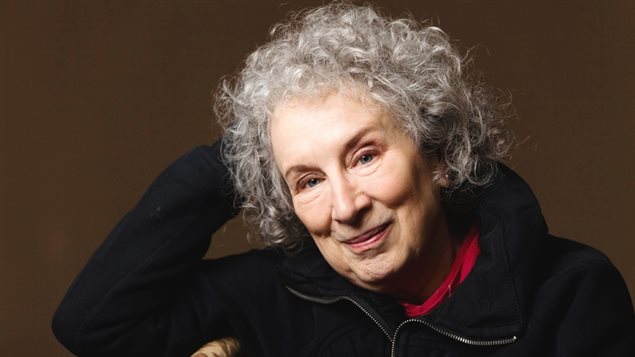Celebrated Canadian author Margaret Atwood is facing a social media backlash after voicing concerns about some aspects of the #MeToo movement in a newspaper opinion piece and for affirming “the right to fundamental justice” and due process for individuals accused of sexual misconduct and their alleged victims.
Writing in the Globe and Mail, Atwood also called for more transparency in the case of Steven Galloway, a former University of British Columbia professor who was fired in 2016 over yet-to-be-proven allegations of sexual misconduct.
In her essay, Am I A Bad Feminist?, the 78-year-old author of The Handmaid’s Tale drew historical parallels and raised concerns over “guilty because accused” attitudes during periods in human history in which the “the usual rules of evidence are bypassed.”
.@MargaretAtwood asks: Am I a bad feminist? https://t.co/YKvYM311bi From @GlobeDebate pic.twitter.com/oll1md1L4g
— The Globe and Mail (@globeandmail) January 14, 2018
“It tends to kick in during the ‘Terror and Virtue’ phase of revolutions – something has gone wrong, and there must be a purge, as in the French Revolution, Stalin’s purges in the USSR, the Red Guard period in China, the reign of the Generals in Argentina and the early days of the Iranian Revolution,” Atwood writes. “The list is long and Left and Right have both indulged.”
She argues that the #MeToo movement, which emerged in the wake of multiple sexual assault allegations against Hollywood producer Harvey Weinstein, is a symptom of a broken legal system.
“All too frequently, women and other sexual-abuse complainants couldn’t get a fair hearing through institutions – including corporate structures – so they used a new tool: the internet,” Atwood writes. “Stars fell from the skies. This has been very effective, and has been seen as a massive wake-up call. But what next?”
But she warns that “understandable and temporary vigilante justice can morph into a culturally solidified lynch-mob habit.”
“My fundamental position is that women are human beings, with the full range of saintly and demonic behaviours this entails, including criminal ones,” Atwood wrote. “They’re not angels, incapable of wrongdoing. If they were, we wouldn’t need a legal system.”
Atwood’s essay drew an immediate response.
If @MargaretAtwood would like to stop warring amongst women, she should stop declaring war against younger, less powerful women and start listening #metoo https://t.co/Bayf1yALV7
— Erika Thorkelson (@ethorkel) January 13, 2018
“Remember a week about when @MargaretAtwood was quoted at the golden globe as an advocate or fighter for survivors?” tweeted another. “She isn’t. She is just one more person who believes survivors until the accused is her friend. Then we are liars.”
Others jumped to her defence.
As a feminist, I want @MargaretAtwood to know I agree with her. The presumption of innocence has been thrown away in this #MeToo movement. The presumption of innocence is one of the main foundation stones of a free society. It must be protected. https://t.co/r9fdGZqGYJ
— Licia Corbella (@LiciaCorbella) January 15, 2018
The storm of controversy forced Atwood to tweet that she’s “taking a break” and “will be back later.”
In today’s dystopian news: Women attack and bully another woman into retreating from online conversation. Not just any woman, but one of the most important voices of our time. Are you all sure you are the champions of women’s rights and freedoms that you see yourselves to be?
— Karen Chrest (@KarenChrest) January 14, 2018







For reasons beyond our control, and for an undetermined period of time, our comment section is now closed. However, our social networks remain open to your contributions.